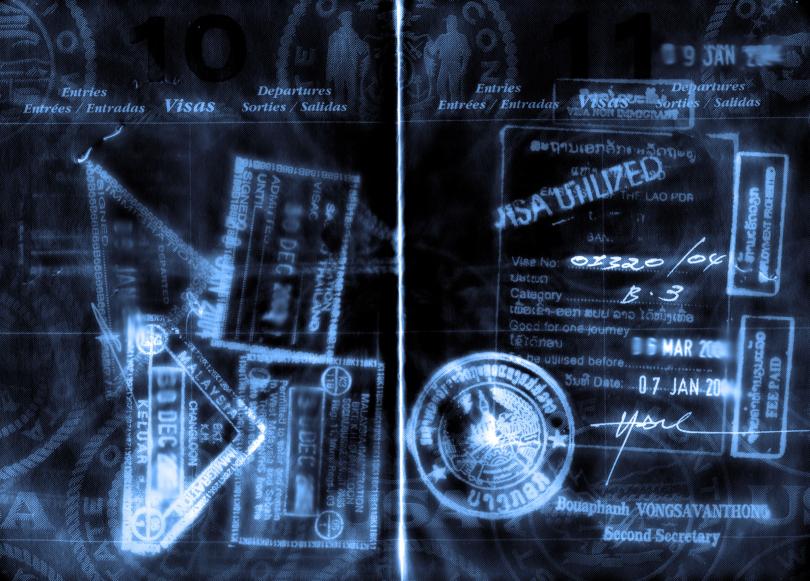
Time’s Ticking: Tell Congress to Act Now to Protect Our Homeland, Reauthorize DHS's CWMD Office
Ron Fizer CWMD, Homeland Security, Science & Technology, Disaster Preparedness, Medical R&DFailure to authorize the continuance of the Department of Homeland Security (DHS) Countering Weapons of Mass Destruction (CWMD) Office is more critical than ever. With our homeland on high alert for terrorism, the threat of a Chemical, Biological, Radiological, and Nuclear (CBRN) event is more existential than ever. Now is not the time to diminish our nation’s capability to safeguard against these threats. With the DHS CWMD Office facing imminent expiration on December 21, 2023, Congressional action is of utmost urgency. Vital to our nation’s security, any closure, even temporary, may make it impossible to bring DHS CWMD staffs’ gifted and rare skillsets back in an effective and timely manner to reconstitute our current vigilance.
Vital DHS CWMD Mission
In December 2018, Congress authorized the creation of DHS CWMD Office through Public Law 115-387. Since then, our nation’s first responders, with the help of DHS CWMD, have confronted a diverse range of CBRN threats, including epidemics, pandemics, fentanyl, and other chemical threats, as well as various radiological threats. DHS CWMD executes its mission in the face of terrorist organizations’ persistent aspirations to acquire and deploy CBRN weapons against the United States. Additionally, the United States faces an escalating danger from nuclear weapons held by adversarial nations across the globe. The DHS CWMD Office was created to provide a focal point to assess CBRN threats and deliver effective capabilities. With those threats as tangible today as in 2018, we must preserve this essential organization that offers central guidance and leadership in support of our first responders.
The CWMD Threat to the Homeland is Real
Since the first National Strategy to Counter Weapons of Mass Destruction was issued in 2002, DHS has played a crucial role in ensuring federal, state, local, tribal, and territorial (FLSTT) first responders can effectively anticipate, identify, assess, detect, and disrupt CBRN threats. These threats have not diminished, as highlighted in a range of recently published strategy documents that emphasize the critical importance of our nation’s ability to effectively counter these threats including:
- 2022 National Security Strategy,
- 2022 National Biodefense Strategy,
- 2023 National Security Memorandum 19 to Counter Weapons of Mass Destruction (WMD) Terrorism and Advance Nuclear and Radioactive Material Security, and
- National Security Presidential Memorandum-36 Guidelines for United States Government Interagency Response to Terrorist Incidents in the United States and Overseas.
CBRN Threat Continues to Evolve
Today’s global security environment has grown increasingly complex and, within it, there is an existential CBRN threat. This threat continues to grow and evolve with advances in life sciences, advanced manufacturing, and computing technologies which expand the potential for an array of new threats. Those emerging or future threats could arise from genetically modified pathogens, advancements in chemical or biological agent delivery systems, or novel means of dispersing radiological materials. Therefore, it is essential for counter-WMD agencies like the DHS CWMD Office to stay vigilant, adapt to changing threats, and continuously enhance their capabilities to prevent the use of WMD against our homeland while promoting the readiness of FSLTT first responders faced with CBRN threats.
Protection for First Responders
DHS CWMD is an integrated organization that delivers operational capabilities and technical assistance to FSLTT first responders to counter current WMD threats and those that may emerge in the future. DHS CWMD effectively collaborates and coordinates with various U.S. Departments and Agencies, communities nationwide, and international partners to protect our nation through enhanced readiness and increased support of first responders. This office provides an integrated focus dedicated to countering WMD threats, including CBRN hazards. DHS CWMD allocates resources and expertise to these specific threats to ensure the nation's first responders’ preparedness and response capabilities are well-developed and coordinated. The office also formulates essential policies that enable improved coordination and response across FSLTT organizations. Additionally, DHS CWMD's efforts in detection, analysis, and intelligence gathering help prevent terrorist acquisition, development, or use of WMDs. By proactively identifying and mitigating these threats, DHS CWMD plays a vital role in upholding national security.
DHS CWMD works closely with FSLTT agencies to synchronize prevention and protection efforts and exchange information related to WMD threats. This collaboration strengthens the collective response capabilities and ensures a unified approach to countering WMDs. This office also facilitates interagency and international cooperation to boost the nation's capacity to address these threats effectively and enhance preparedness and response capabilities globally.
The office leads the investments in research and development efforts to optimize technologies, capabilities, and countermeasures against WMD threats. This includes advancements in detection systems, protective equipment, and response strategies. To compliment capabilities and policies, DHS CWMD offers training and exercise programs to enhance the knowledge and skills of personnel involved in countering WMD threats.
Congress Must Act Now to Protect the Homeland
Bottom line, the failure to authorize the continuance of the DHS CWMD puts our homeland at increased risk. Current global conflicts, combined with the persistent and growing risk of CBRN events, create significant threats to our nation. Now is not the time to eliminate the office charged with spearheading focused prevention efforts and ensuring effective responses. Tell Congress to act now to protect our nation by reauthorizing DHS’s CWMD Office.
DHS CWMD initiatives:
- Contribute to heightened national preparedness
- Prevent terrorist attacks
- Promote global security
- Focus on countering WMD threats
- Foster interagency coordination
- Establish international partnerships
- Advance research and development
- Organize training and exercise initiatives.


Ron Fizer
Fellow Emeritus, Management StrategyRon Fizer, a retired U.S. Army colonel, applies his technical and analytical expertise to complex problems related to countering weapons of mass destruction (CWMD) and chemical, biological, radiological, and nuclear (CBRN) defense.



